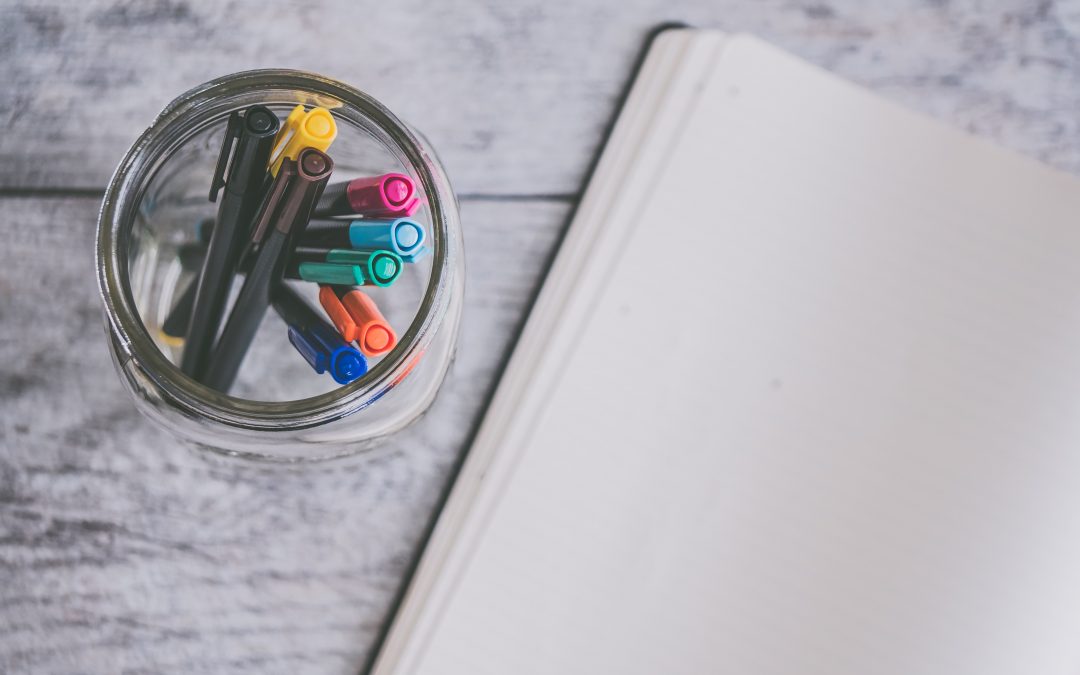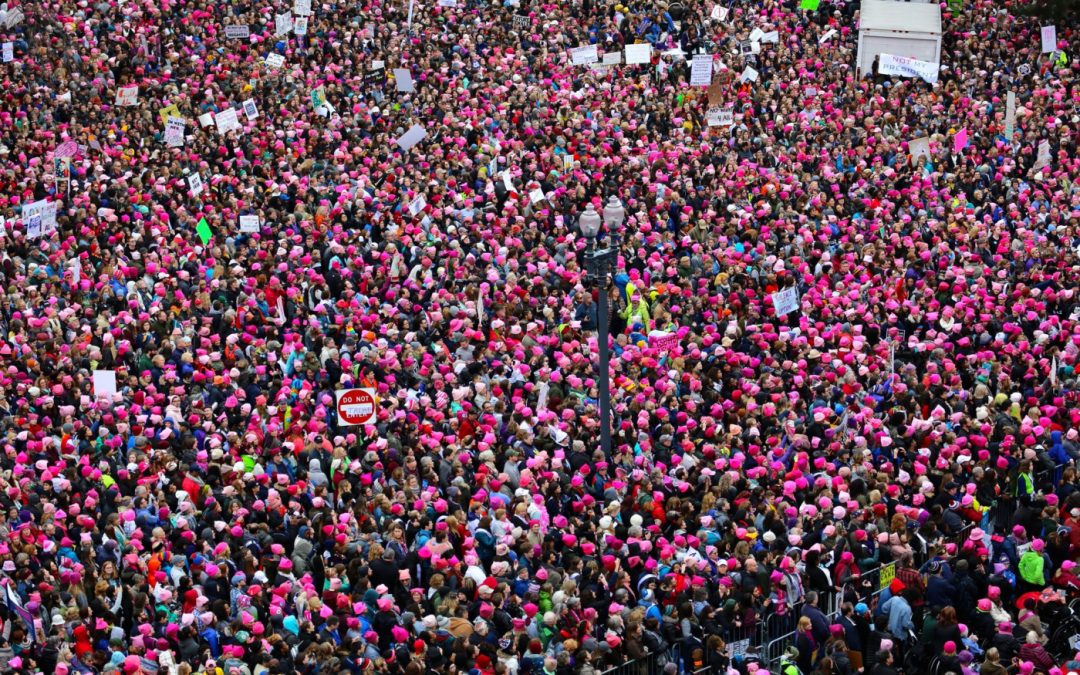
by Nicole | Sep 4, 2018 | Featured, Life, Published, VINAZine
There are so many advantages to having a side project, especially if it’s something that pulls out your creativity. I love my job. I truly do. But my job doesn’t define me, nor is it what my life revolves around.
To stay sane, I freelance and work on a couple of passion projects. And you know what? My boss loves it because it keeps me happy and motivated, which in turn, makes me a better worker for my company.
I am a firm believer in the fact you need to make time for the things you love. By doing so, you’ll create a healthy work/life balance and not feel drained by your day job. It should go without saying, but it’s important to not lose your passions after you accept a job, especially if your new profession is demanding.
When you have a steady income, that can make the side projects you have feel much more fulfilling. There isn’t pressure to hold down your creative side, You have the freedom to try different things, like taking the cooking class you always wanted to try. Take up painting or photography. I write in my spare time; throughout the work day, I’m able to write a bit on breaks and over lunch. Not only does it feed my soul, it boosts my brain and gives me a burst of energy, especially when I have hit a wall.
The other nice thing about having a day job and with various passion projects on the side is that it not only shows you can manage your time well, but that you have a diverse set of interests. This builds your set of skills too, which makes your resume look great when you’re looking for a new job.
You can even turn your creative side projects into money makers. Become an expert in something you enjoy by taking an online class or getting a certification, then doing some freelance work on the side.
Keeping a creative side hustle keeps your brain sharp, your resume stacked, and your life full. Make time for something you love each day – your soul will thank you!
This post was originally published on the VINAzine <3

by Nicole | Jul 10, 2018 | Featured, Life, Published, Reflections, Social, VINAZine
Over the last decade, it’s no secret that social media has wildly grown and become an essential piece of our daily lives. There are SO many pros to using a social media network, like connecting with friends, co-workers, family, or meeting awesome new friends. We can make connections around the globe and aren’t limited to the people who live in our vicinity. It’s truly a beautiful thing, when used correctly.
For me, Facebook became a site I logged into out of habit and rarely enjoyed my visit. I would endlessly scroll through the timeline and became increasingly annoyed at most of the posts I read. I got to a point where I would log in and think, “Why am I even here?”
Sure, I enjoyed seeing updates from friends and family about their happy lives, but i could no longer tolerate or scroll past the users who would blindly share incorrect information or misleading/fake news stories. I wanted to shake the person posting and scream, “Seriously, it takes 30 seconds to open Google and verify something these days!” I even texted a friend and said those exact words. Their response? They didn’t care or think it was a big deal. I finally reached a breaking point.
I decided to actually do something about it. I couldn’t continue correcting people in the comments (yeah, it’s fine, I was that person…). It was time for me to bid my adieus and bow out gracefully. But that isn’t the answer for everyone!
How do you know a social media detox, whether it’s in the form of deactivation or deletion, is right for you? Start by asking yourself these questions:
- Is this adding joy to my life, or is it simply a way to pass time?
- Would I miss it if I didn’t have it?
- Am I wasting too much time endlessly scrolling through a news feed, only to find myself annoyed or angry at the content I view?
That third question was a big YES for me and that’s how I knew it was time to detox. I ended up deleting my Facebook account in May after having it for 12 years. TWELVE YEARS! I mean, the archive this website had on me was insane (which, to be honest, was a great reason to delete it). I was worried I would have a serious case of FOMO, but I don’t. Sure, I miss connecting with friends and family but deleting has (happily) forced me to make phone calls and send texts/emails to the people I love.
I still have Twitter and Instagram, but I’ve changed my habits on both of those platforms after this detox. I took a small break from posting anything on those networks and even deleted the apps off my iPhone for a couple of weeks. I missed those much more than Facebook, though. It didn’t take long to reinstall those and I didn’t have a sense of dread when I did. I kind of had the “first day of school” feeling — you know, when you’re excited to get back to see all your friends and hear about what they did during the break!
When I decided to end my detox with Twitter and Instagram, the first two questions I mentioned before were now easily answered: yes, these do bring joy to my life (but also to pass time when I am waiting for someone or something), and yes, I did miss it when I didn’t have it. That’s how I knew I took enough time away.
Deleting Facebook was a bigger decision, given I was connected with family and friends. That, and I used Facebook for professional purposes. I help moderate several pages and groups on different networks for the podcasts on which I work, and I simply can’t abandon them. I found a way to work around this and still have a successful detox and/or removal of my main account, but it does require some effort.
- Make a new “burner” account. Create a new, separate profile without any friends or personal details (or what you consider to be the bare minimum of information for your profession).
- Log back into your original account and make that new burner account an admin/editor of all the pages you run. If you work for a company, make sure you clear this with your boss first!
- Log into the new profile and test! Double-check your permissions are correct and that you have access to everything you need.
- Wait a couple of weeks. Make sure you have everything you need from your original account before pulling the plug. Or, just rip off the bandaid – honestly, what’s the worst that can happen?
- Click that delete button! It’ll feel so good, I promise.
Would I detox again? Absolutely. I think it’s healthy to take a break from everything in life every now and again – it’s just like taking a vacation from work. Sometimes you just need to unplug!

by Nicole | Jun 5, 2018 | Featured, Journals, Life, Published, Reflections, VINAZine, Writing
Keeping a journal has been an essential piece of my writing process, since the moment I became a writer all those years ago. Putting the pen on the page and letting my thoughts spill out before me is not just comforting, but helpful – even if I am just doodling or writing about how much I dig the pen I’m using.
Journaling been so many things to me, but the three things below are what I find most important about my journaling journey.
BRAINSTORMING
When I am working on a project (personally or professionally), I often start with brainstorming. I will literally just start writing down topics, key words, random thoughts, or any tangent of an idea that I’m having at that moment that is connected with the task at hand. When I take to my journal to hash out potential ideas for a blog, poem, or for a process at work, I let my pen narrate my thoughts. It helps me to visual the ideas I have, either in front of me on the page or displayed on a white board. And because I love lists, it helps me organize my thoughts and formulate a plan to move forward.
LOGGING LIFE, EXPERIENCES, AND PROJECT PROGRESS
I have more notebooks than I need, so I usually use them for separate things. I have a journal for personal thoughts, a small journal I keep in my purse for musings on the fly, legal pads for outlining, etc. I also write down big things that happen during every day life, so I can look back and see how I changed, for better or worse. When I got married this past spring, I recorded our weekend and the epic road trip that followed, so my husband and I could read it later and remember exactly how our marriage began.
A few years ago, I decided to dive head-first into fiction and began writing a novel (and I won’t lie, it’s taking forever because, you know, life). I started a journal for that project mainly to chronicle my thoughts, shortcomings, and victories while working on the piece. How wonderful it will be to look back on that journal when I finally finish the book, to see how I grew as a writer. And who knows, maybe I’ll find gems years later that prompt the next endeavor!
THERAPY
Ah. Therapy! Perhaps the most important reason why I keep a journal. Since I was a pre-teen, I have written down my thoughts to sort through them. Those angsty teen (and let’s face it, early twenty-something) feelings I had were always worked out between the pages of my private journal. The things I went through as a kid, teenager, and young adult – I was able to sort through the weird thoughts and feelings by writing down how I felt in the moment. I don’t know where I would be, emotionally and mentally, if it weren’t for my journals.
One of the most therapeutic exercises I’ve done is not even keeping some of those pages inside the journal. To work through the tough stuff I write down exactly how I’m feeling. Maybe it’s directed at a person, or just how I’m feeling in general. When I’m finished, I make a deal with myself: once I destroy this paper, I will let it all go. That’s when I rip it to shreds. I flush it down the toilet or I burn it. It’s a strange relief, I must say. It honestly helps me move forward.
What are your reasons and how does journaling help you? Even if you aren’t a writer, give it a shot. You might be surprised with where journaling will take you!
This post was originally published on the VINAzine <3

by Nicole | May 23, 2018 | Life, Professional, Published, VINAZine
Interviewing is no walk in the park for most of us. Between the nerves and the need to impress the person on the other side of the table (or on the other end of the phone), it can be hard to stay in control of the situation — but it’s important that you do!
You have to remember you are interviewing the person and company just as much as they are interviewing you. By doing your homework ahead of time, you’ll be able to start off with the upper hand. Some things you can do ahead of time:
- Look into the company culture and check out reviews on Glassdoor (a fantastic resource that not only gives you salary and job information, but reviews from employees and how the interview process went for candidates who applied previously).
- Have a number in mind when it comes to salary. Know your worth, vina!
- Be ready to ask them questions about their culture and future as a company, and how they see you fitting into the mix.
So, now you’ve done your homework and it’s time for the phone or in-person interview. How do you stay in control?
For starters, don’t be afraid to ask the interviewer why they were interested in speaking with you about the position. Say something like, “What about my resume interested you?” or “What about my background caught your eye?” This will help set you up as a power player for the interview.
It will also prompt the interviewer to answer with specific skills that are likely needed, which in turn prompts you to respond with a confirmation statement, acknowledging they have a solid understanding of your background/skills.
Asking those questions in the beginning leads straight into the thing no one wants to talk about, but it’s important to discuss immediately: salary. I’m going to be frank — it’s important to get this out of the way as quickly as possible because no one wants their time wasted — not you, and most certainly not your interviewer. It’s not a fun dance, but a necessary one. You can start by saying simply, “What salary do you have budgeted for this role? I’d like to make sure we’re on the same page.”
If they come back with a range, awesome. If it’s in your desired range, that’s even better! But don’t be surprised if they try to dodge the question or tell you they cannot disclose that information yet. If they turn it back around on you by asking you what you currently make, you don’t have to tell them (in fact, it’s a law in several states that employers can’t ask prospective employees their current salary). Be polite and firm. You can say “my previous employers have always considered that to be confidential information…” and add one of the following to the end of that statement:
- “…but I’m open to your thoughts on this because I believe you will be consistent with the current market.”
- “…but I’m open and somewhat flexible as I appreciate the opportunity to add value. Can you share how you value this position and what the budget is for the role?”
The idea here is to be polite, firm, and show your genuine interest in the opportunity. After all, you’re interviewing each other for a reason!
Another way to stay in control is to remind them that they called you. Ask them questions that reflect on your skills. “Can you tell me what a typical week looks like in this position?” or “what kind of projects will I be working on for your company?”
Last but certainly not least, be transparent about the fact you’re interviewing with other companies. It’s not something that should hinder your chances for landing the job, but rather help give you an advantage. You can simply tell the interviewer that you are speaking with other companies and you’d love to continue the conversation, but make sure you ask when you’ll hear back from them. If they don’t give you a definite time frame, don’t be afraid to request one. You don’t want to hang out forever waiting to hear back, especially if other opportunities arise in the meantime.
This post was originally published on the VINAzine. <3

by Nicole | Apr 27, 2017 | Friendship, Published, VINAZine
We’ve all been there – pouring our heart out to a pal only to realize she’s distracted by her own thoughts… or cell phone, television show, the server passing your table with her kryptonite (a piece of unbelievably delicious cheesecake, of course). The “uh-huh”, and, “yeah,” of the conversation and the stray glances around the room are a dead giveaway.
We’ve also been guilty of passive listening ourselves, right? While our friend is in the throes of a breakdown or when she’s needing advice, we’re distracted by the same phone notifications or television blaring in the background.
Passive listening (AKA not really listening) hurts our friendships. There is good news though – we can fix this now and be better friends by using a communication technique called active listening.
Active listening requires the listener to do four core things: concentrate, understand, respond, and remember. Think of it as a cycle – when we concentrate, we understand. When we understand, we can respond appropriately. As a result, we can more easily remember the conversation.
Easy peasy, right? Be a better listener, be a better vina! Here are a few tips to help you become a better active listener, and in turn, a better bestie.
Make eye contact. Put your phone down and look at your friend’s gorgeous face while she talks! This shows you’re fully invested in what she’s saying.
Re-state, but don’t be a parrot. By paraphrasing what you just heard (in your own words), you can ensure you’re on the same page with the speaker. You can use a leading statement like, “Let me get this straight…” before you reiterate what you just heard.
Learn how to effectively question. Sticking to open-ended questions always keeps the conversation going. You can also use leading or reflective questions, like, “What happened next?” or, “What worries you about that?” to make sure your gal knows you’re engaged in the conversation.
Allow for silence or pauses within the conversation. Don’t get in a hurry during your chat. By taking some pauses or letting comfortable silences happen, it slows down the conversation and allows more time for you both to process what is being said.
Avoid blocking the conversation. Interrupting, preaching, or acting judgy toward your friend is probably the quickest way to make sure she doesn’t come back to you with her dilemmas (or her successes!). Keeping your mind open and mouth closed while your bestie tells you what’s on her mind will help you better process what she’s saying while your bond becomes even stronger.
Like most things, practice makes perfect. Active listening is a skill we hone over time that helps us build trust and understanding between us and our friends. Being fully engaged in the conversation takes some work, but we have in us. Be a better friend by being a better listener, babe – our friendships are worth it!
This post was originally published on the VINAzine <3

by Nicole | Mar 4, 2017 | Beliefs, Life, News, Past Events, Politics, Published, VINAZine
On January 21, 2017 people around the globe came together to march in solidarity for women’s–and human, rights. It may have been initially organized to happen in Washington, D.C., but it soon became a collective phenomenon of cities around the world. Millions marched to make sure our collective voices were heard. And let me tell you- they most certainly were!
Why does the physical act of marching matter? Can it actually create change and awareness? Why yes, my darling vina, it absolutely can. Not only history, but psychology tells us so.
Kimerer LaMothe, Ph.D. recently shared an analysis on why the bodily action of marching matters, claiming, “To march is to move together in time.” LaMothe says that while we may not be moving at the same pace, a group of people moving together is “impossible to underestimate.”
LaMothe talks about “moving with others” in the sense that it creates an awareness and embodies democracy in its truest working form. She states that collective movement,“is about creating the conditions for generating ideas — a rich motley mix within which new visions may form. It is about generating networks of thought, feeling, and shared experience across which actions can travel.”
So why physically march with others? Simply put: to get us together – bodies, voices, and perspectives. To show support for each other align our goals: to keep moving forward. To realize we are not alone.
Moving together with others lights a fire and sparks motivation. Getting large groups of people together for a common purpose helps create a strong presence that can be seen and felt through passion and proximity. We are creating a community that builds us up, makes us strong, shows we’re loud and proud, and it’s undeniably engaging.
Coming together in large numbers like we saw during the Women’s March on Washington is motivating and inspiring. I mean, we’re still talking about it nearly two months later. That fact alone should help us realize that we can actually create change in our country and around the world, just by getting together to support each other and make our voices heard.
(Featured image courtesy Occupy.com)
This post was originally published on the VINAzine <3





